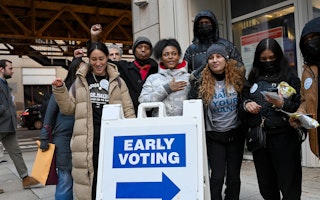All Kids Deserve a Second Chance
By Sarah Baker
In this country, we believe that when kids get into trouble, we should help them get back on track rather than simply punish them. They need to be held accountable, but they’re not yet adults. Kids are kids—not miniature versions of the adults they will one day become—and we should treat them with this in mind.
Unfortunately, when young people do something wrong, only some are treated like kids and given the second chances they deserve.
As a child, I was what some adults euphemistically called “high-maintenance.” I acted out a lot, especially when hormones, peer pressure, and insecurity came into the mix. Most adults attributed my behavior to adolescent angst; others turned a blind eye. My adolescence was pockmarked with a series of close calls, but the adults in my life were willing to take a benevolent stance on my transgressions. To be sure, there were consequences; but all of my experiences reinforced the idea that mistakes were forgivable, provided that I did my best not to repeat them. No single mistake followed me into adulthood or determined my life path. But then again, I was also a white girl in an affluent New England suburb.
Other kids in trouble do not get off so easily. The practice of putting children on sex offender registries is one glaring example of how we have failed to provide true justice for kids by disregarding what makes young people different from adults, and imposing extreme punishments on kids with severe ramifications that last a lifetime. A recent report from Soros Justice Fellow Nicole Pittman, in partnership with Human Rights Watch, details the irreparable harm done to children who are placed on sex offender registries for mistakes made in their youth, often before they are even fully cognizant of the way their behavior is perceived or the consequences it may have. Policies originally enacted to protect children are now being used to stigmatize them in their most formative years and strip them of their identities by labeling them “sex offenders.”
Requiring sex offender registration for children does far more harm than good and ignores what the Supreme Court has affirmed time and time again when it comes to children—namely, that “incorrigibility is inconsistent with youth.” Young people’s capacity for change and rehabilitation, and the limitations of their cognitive ability, are unique and should be central to how we treat children in conflict with the law. Too often, though, we brand children with the label of criminal or sex offender and then wonder why they don’t all go on to have college degrees and successful careers.
Kids are vulnerable; they deserve to feel safe and be protected. The sex offender registry was first established as a law enforcement tool for the surveillance of individuals convicted of grave offenses and deemed a risk to others. But because registry requirements don’t distinguish between people who pose real threats and those who don’t, young people who don’t threaten public safety must routinely report to the same registry location as those who do. Many children on the registry are thus especially vulnerable to violent and sexual assault, and in their own neighborhoods, they and their loved ones regularly experience harassment, threats of violence, and vigilante attacks from members of their communities who write them off as monsters.
Pittman’s report details how children on the registry face the kind of humiliation and shame that no young person is equipped to deal with or should have to endure, not to mention severe setbacks to their education and socialization. To those who assess the real implications of these punishments, it is no surprise that suicide is rampant among people placed on the registry as kids, or that as they grow up, they lack access to education and employment and experience homelessness, poverty, and depression at rates far higher than their peers.
The bottom line is this: all kids deserve to be treated with dignity, but in reality, only some kids are. And while children should be held accountable for their actions, only some people spend their lives paying for mistakes made in their youth. I am the beneficiary of an entrenched system that believed I deserved better. The reality is that all kids deserve better; all kids deserve a second chance.
Until January 2018, Sarah Baker was a program specialist with the Justice Fund in U.S. Programs.


